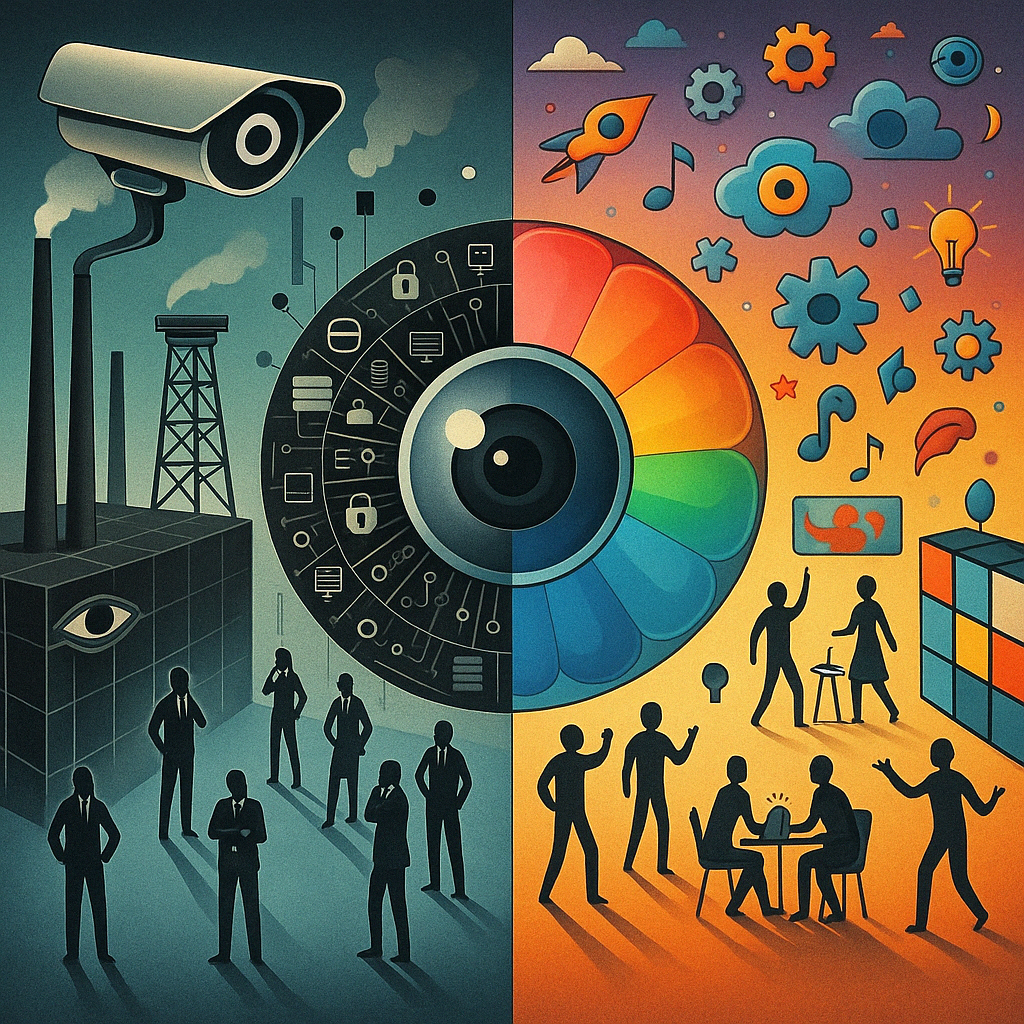AI Is Not Fascism: On Tools, Power, and the Danger of Misplaced Metaphors

I have started to see discourse online essentially boiling down to "AI is fascism,” or, “those who use AI tools are enabling authoritarianism.” These takes are emotionally charged, and that makes them hard to evaluate. At first glance it may seem like a brave moral stance. But when you look more closely, it turns out to be too vague to be useful—and it ends up flattening some important distinctions in the process.
To say that AI is fascism is to mistake a tool for a regime. Fascism is a historically specific ideology marked by totalitarian control, suppression of dissent, glorification of violence, and ultranationalist identity. It is not a machine learning model. It is not a chatbot. It is not even surveillance or predictive policing—though these can certainly be used by fascist regimes. The danger lies not in the existence of a tool, but in who controls it, for what purpose, and with what oversight.
Put simply: fascism is about ideology and domination. AI is about algorithms and pattern recognition. Confusing the two makes it harder to critique either one meaningfully.
This is a self-evident distinction, yet it is increasingly obscured by the emotional shorthand of our age. Consider a historical parallel: when Orwell warned of the telescreen in 1984, he was not condemning the invention of cameras or televisions. He was warning us about a society in which all tools are conscripted into the service of totalitarian power. The dystopia was not technological, but political.
Saying "AI is fascism" because it might be used in harmful systems is like saying "television is fascism" because it could be used for propaganda. The potential for harm doesn't erase the distinction between a communication device and a dictatorial regime.
We can see the same confusion at work in the modern panic around AI. It is true that AI can be used in harmful ways—to surveil, to manipulate, to concentrate power in opaque systems. But it is equally true that AI can be used to empower. For many disabled, neurodivergent, or time-strapped individuals, AI offers meaningful autonomy and access. It helps people write who struggle with executive function. It lightens the cognitive load for caregivers, researchers, and creators. It enables people to communicate ideas that might otherwise remain trapped in isolation.
To ignore this is to erase real human experience in favor of abstract moral panic. When someone says "AI is soulless," they may be reacting to low-quality outputs, or to the displacement of labor without care for those displaced. These are valid concerns. But they do not invalidate the meaningful, dignity-affirming ways in which others use the same technology.
Here, it helps to clarify a key difference: harmful incentive structures are not the same as fascism. An incentive structure is just a set of pressures or rewards that shape how people behave—like a company prioritizing profit over fairness, or an algorithm favoring engagement over truth. These can create unjust or exploitative systems. But fascism is more than bad incentives. It is a political project rooted in violence, domination, and the elimination of pluralism. Collapsing the two into one label makes it harder to name or address either clearly.
What makes a tool oppressive is not its complexity, but its allegiance. A spreadsheet can help a small business owner plan for growth, or help an authoritarian regime track dissidents. A camera can document injustice or enforce control. A language model can produce clickbait or help someone find their voice. The difference lies not in the tool, but in the intent behind its use and the system within which it operates.
The danger of calling AI "fascism" is not just that it is false. It is that it short-circuits the actual questions we need to ask: Who is using this tool? Who benefits? Who is harmed? What consent exists? What transparency? What recourse? These are the questions that determine whether a technology expands or erodes human freedom.
If we fail to ask them—because we are too busy lobbing metaphors at each other—we risk missing the very thing we claim to fear: the quiet consolidation of power beneath a fog of outrage.
AI is not fascism. It is a mirror. It reflects back the values of those who wield it. If we want a future that honors human dignity, we must stop treating tools as villains and start holding systems, ourselves, and our leaders, accountable.
